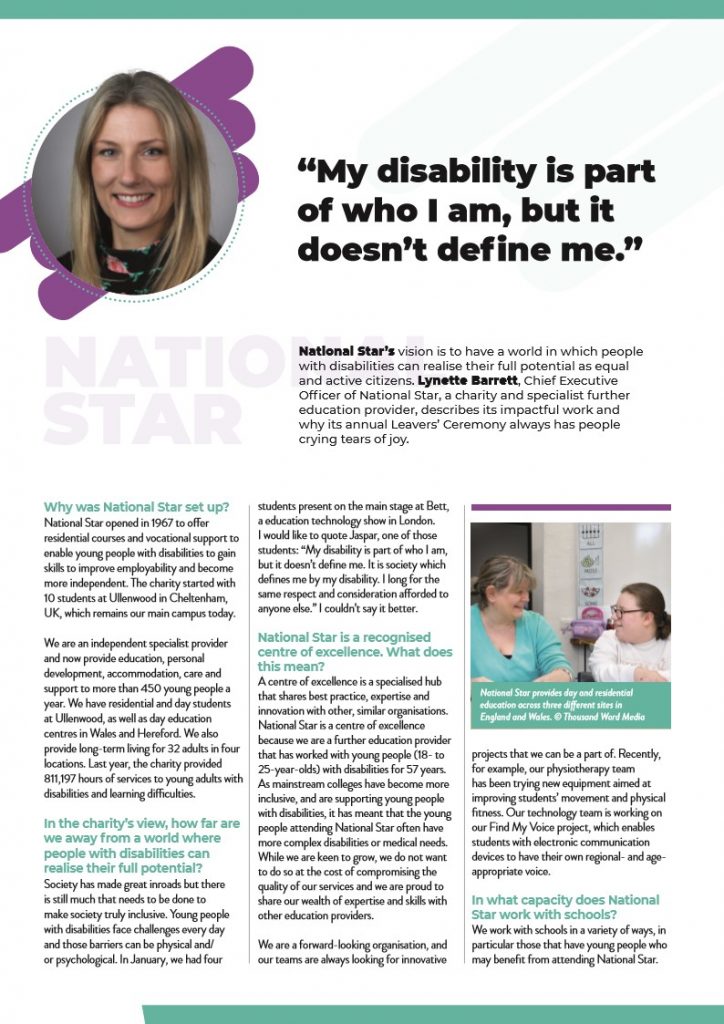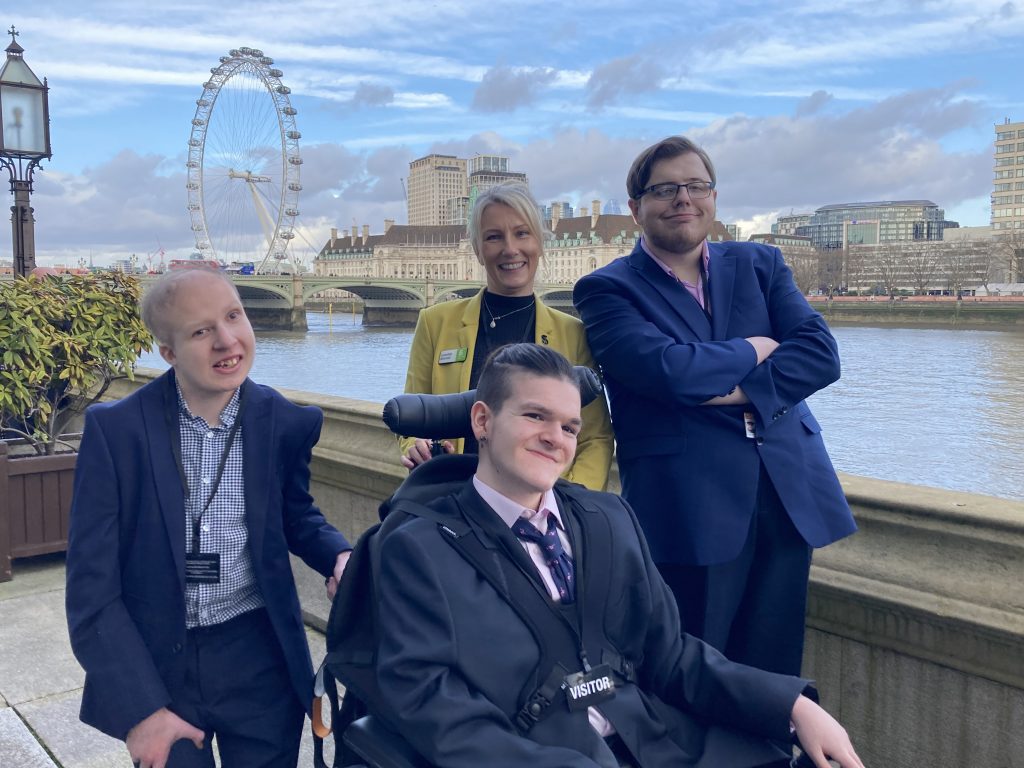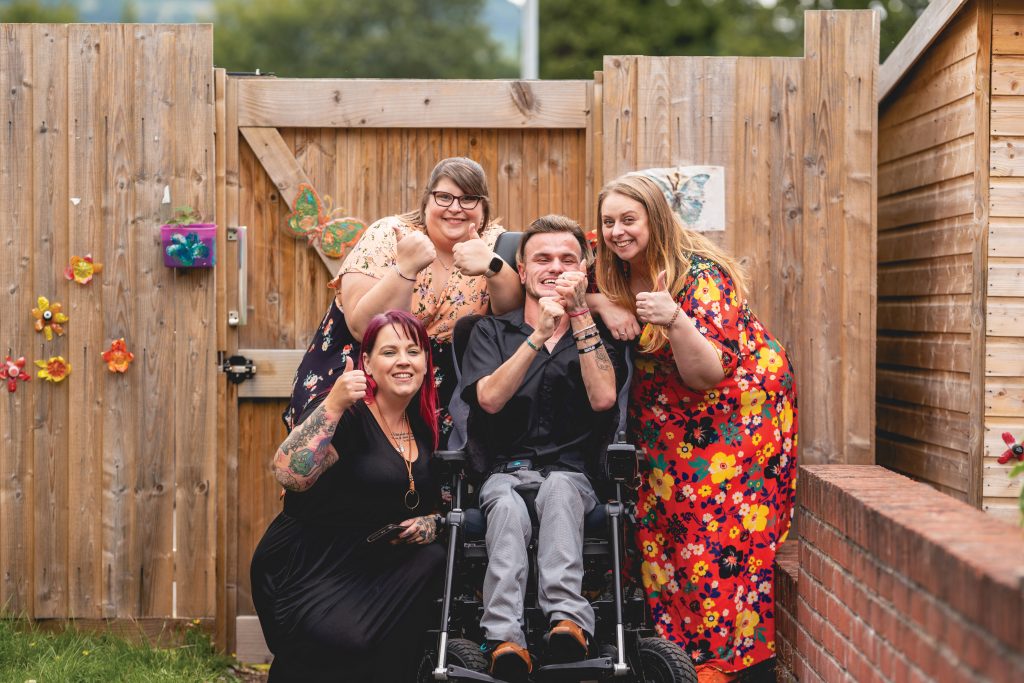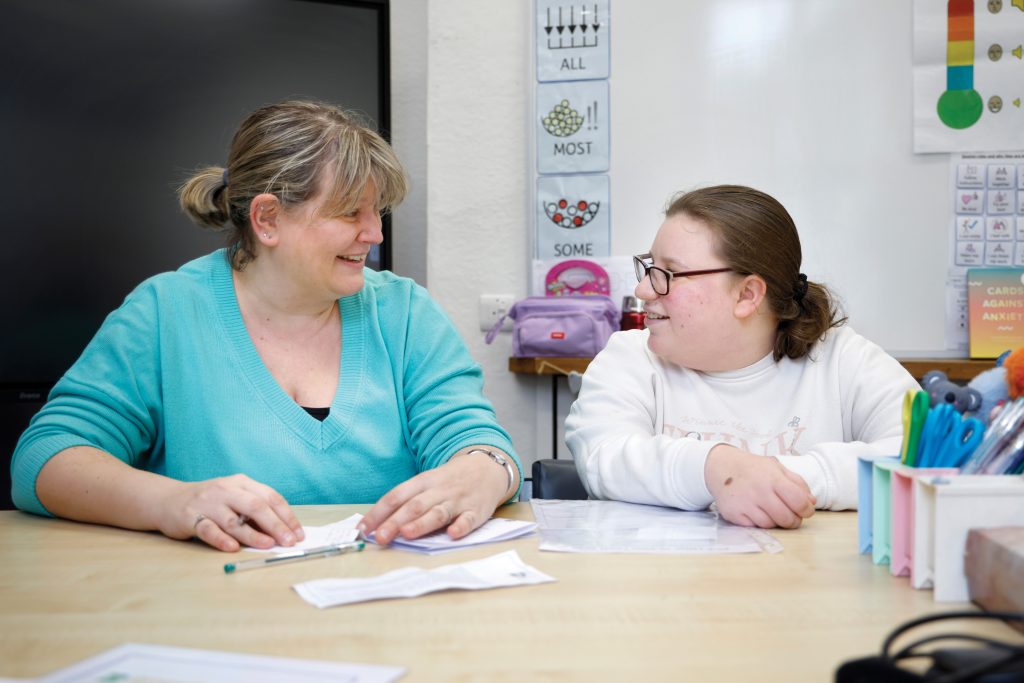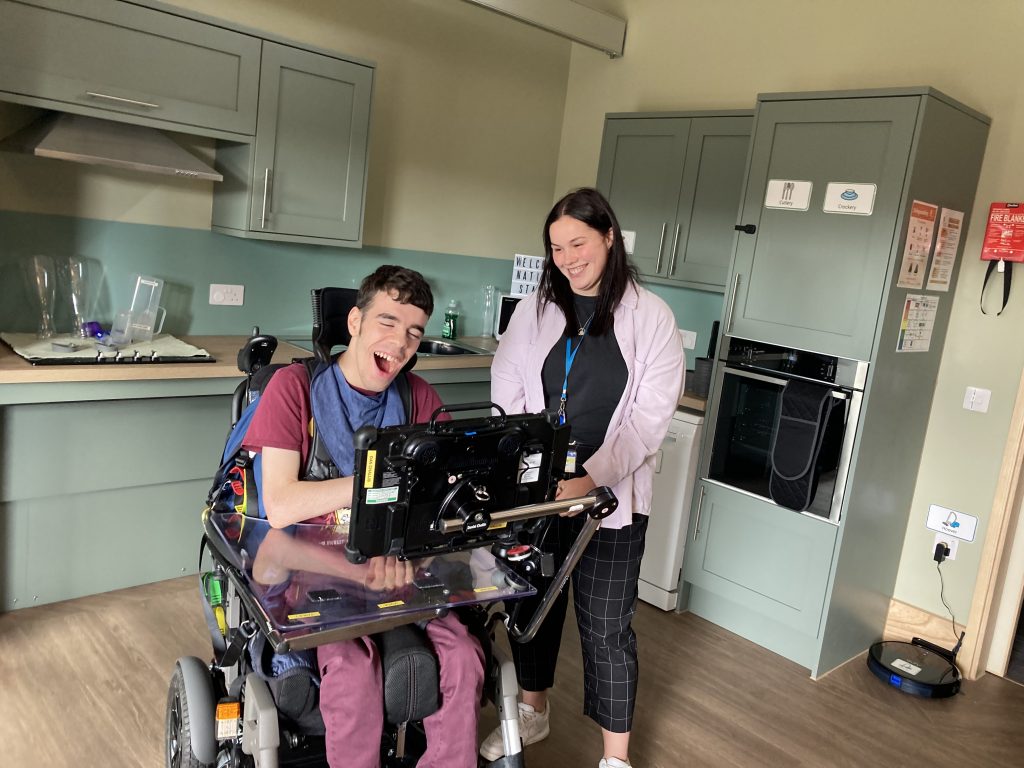“My disability is part of who I am, but it doesn’t define me.”
National Star’s vision is to have a world in which people with disabilities can realise their full potential as equal and active citizens. Lynette Barrett, Chief Executive Officer of National Star, a charity and specialist further education provider, describes its impactful work and why its annual Leavers’ Ceremony always has people crying tears of joy.
Why was National Star set up?
National Star opened in 1967 to offer residential courses and vocational support to enable young people with disabilities to gain skills to improve employability and become more independent. The charity started with 10 students at Ullenwood in Cheltenham, UK, which remains our main campus today.
We are an independent specialist provider and now provide education, personal development, accommodation, care and support to more than 450 young people a year. We have residential and day students at Ullenwood, as well as day education centres in Wales and Hereford. We also provide long-term living for 32 adults in four locations. Last year, the charity provided 811,197 hours of services to young adults with disabilities and learning difficulties.
In the charity’s view, how far are we away from a world where people with disabilities can realise their full potential?
Society has made great inroads but there is still much that needs to be done to make society truly inclusive. Young people with disabilities face challenges every day and those barriers can be physical and/ or psychological. In January, we had four students present on the main stage at Bett, a education technology show in London. I would like to quote Jaspar, one of those students: “My disability is part of who I am, but it doesn’t define me. It is society which defines me by my disability. I long for the same respect and consideration afforded to anyone else.” I couldn’t say it better.
National Star is a recognised centre of excellence. What does this mean?
A centre of excellence is a specialised hub that shares best practice, expertise and innovation with other, similar organisations. National Star is a centre of excellence because we are a further education provider that has worked with young people (18- to 25-year-olds) with disabilities for 57 years. As mainstream colleges have become more inclusive, and are supporting young people with disabilities, it has meant that the young people attending National Star often have more complex disabilities or medical needs. While we are keen to grow, we do not want to do so at the cost of compromising the quality of our services and we are proud to share our wealth of expertise and skills with other education providers.
We are a forward-looking organisation, and our teams are always looking for innovative projects that we can be a part of. Recently, for example, our physiotherapy team has been trying new equipment aimed at improving students’ movement and physical fitness. Our technology team is working on our Find My Voice project, which enables students with electronic communication devices to have their own regional- and age-appropriate voice.
In what capacity does National Star work with schools?
We work with schools in a variety of ways, in particular those that have young people who may benefit from attending National Star.
We also use technology to motivate students. For example, students learn about eSports in multimedia sessions and are involved in planning events, such as Bett earlier this year. For this show, they decided on the topics and were a key part of the planning.
Why is there a strong emphasis on the creative and performing arts and sports at National Star?
Our aim is to provide individualised personal development programmes to help young people develop and sustain personal skills. While we offer performing arts and sports, they are embedded through the curriculum. We use a multi-disciplinary approach, which means education, therapies, residential and nursing teams work together to enable the student to develop their potential.
Lynette Barrett with students at the Houses of Parliament in London, UK
© National Star
© Thousand Word Media
© National Star
We are privileged to work with young people with a range of complex needs. Some of them may aspire to get a job, learn to live with their peers or to independently drive a powered wheelchair. For others, it may be to learn to make choices for themselves and to take as much responsibility as they are able.
Can you provide some examples of the communication and life skills taught on the programme?
These vary from student to student, reflecting their needs and abilities. We support young people to find their voice. That may be verbal, or it may be finding different ways for them to communicate. Students use a wide range of communication devices, which they may operate with their eyes, hands, head or even feet. We had a student who communicated through the exhalation of breath, and we worked with her so that she could express her wishes and choices in this way. No two disabilities are the same and it is important that we work with the individual to find the right solution.
Why is teacher training and development an important part of National Star’s offering?
One of the charity’s aims is to improve the quality of education provision for people with disabilities and one way we can do that is to work with other organisations, schools and businesses. Our multi-disciplinary teams have an incredible wealth of knowledge and expertise, which we share through a range of activities, including working in partnership with The Education and Training Foundation (ETF). ETF sets professional standards for improving the quality of teaching and leadership in the further education and training sectors.
Some of National Star’s fundraising activities, such as firewalking and wing walking, are high-adrenalin activities and encourage participants to be brave! Is this intentional?
High-adrenalin activities are often very successful as fundraising events, and participants are more likely to be sponsored to take part in something exciting, high-risk or physically challenging. These types of events, which push us out of our comfort zone to face a particular challenge, help people gain some understanding of the daily challenges faced by young people with disabilities. The things non-disabled people take for granted, such as, for example, making a cup of tea in the morning, can take huge amounts of concentration and energy for someone with disabilities.
Firewalking and wing walking are what can be termed ‘bucket list’ events – an experience or achievement a person would like to have done before they die. Both of these events leave the participant feeling that they have achieved something they may not have thought possible. Often participants have their own fears – fear of heights, fear of flying, etc. – so they get a great deal out of conquering those fears and supporting the charity.
Why are these fundraising activities so important?
The statutory funding we receive pays for the services and care we provide but the reason we have such high-quality facilities is due to fundraising. Through fundraising, we can provide the best possible facilities to enable students with complex disabilities to progress, grow and flourish, and to make the most of their time here at National Star. Fundraising also helps provide the necessary specialist equipment for delivering life-enhancing therapies and innovative technology that help a young person with complex disabilities become more independent. For example, our physiotherapy team have done some research into innovative equipment that helps improve students’ fitness and muscle control. One of these pieces of equipment, a specialist cross trainer for people who use wheelchairs, costs almost £50,000. The only way we will be able to get that piece of equipment will be through fundraising.
What have been some of National Star’s proudest achievements to date?
If you ask any member of staff about what brings them the most job satisfaction, they will all say it is enabling students to achieve great things. It could be something that may not seem like a big deal – for example, being able to go to the theatre and watch a pantomime – but something like this represents a huge achievement for the individual with a disability.
Students are at the centre of what we do and are National Star’s greatest ambassadors. The four students who presented at Bett, for example, shared their stories and enabled people to understand how technology can be life-changing for people with disabilities. Sam’s campaign to make the blue badge more inclusive (see page 4) exemplifies what we set out to do. Since his time here at National Star, Sam has grown into a confident young man who has a passion and a clear objective. What National Star has done is given him the support and skills to achieve his aspirations in life.
Every year, when students finish their time with us, we celebrate their successes at a Leavers’ Ceremony. By the end of this event, no one has a dry eye.
Find out more about National Star
Website: nationalstar.org
What is the Learner Voice?
Natspec is a membership association for organisations that offer specialist further education and training for students aged 16 to 25 with learning difficulties and/or disabilities. It provides examples of different approaches to Learner Voice work:
- Learner Councils/Student Unions
- Learner representation on governing bodies
- Learner involvement in college self-assessment processes
- Learner involvement in curriculum and transition planning
- Learner-led initiatives
Visit the website for more information: natspec.org.uk/resources/learner-voice

